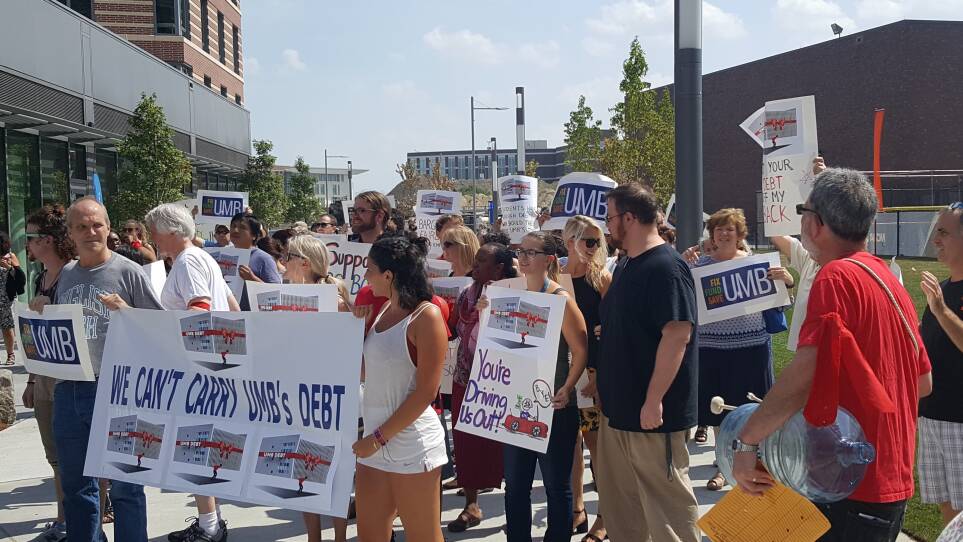Victor Acevedo just caught a huge break. He was selected to become a resident advisor at UMass Boston. Instead of spending six hours a day navigating public transit between campus and his home in Methuen, he’ll get to live in the new dorms for free.
“I’ve been trying to find the right words for this experience,” said Acevedo. “It’s almost as if it is surreal to know that I’m a few steps away from school.”
Acevedo is the first in his family to go to college. He's juggled full-time work with his quest to get a degree. It's the story of many students on this campus who struggle to pay tuition, never mind footing the bill for on-campus housing.
And that's the point, said the school's interim chancellor: Get as diverse a group of students as possible.
“We devoted a lot of resources to making sure students from low incomes would have the same opportunities as students from more middle-class backgrounds,” Katherine Newman said.

The school kicked in $1.4 million in an effort to create a demographic mix in the dorms that reflects the wider student body. About a quarter of the residential students are low-income, compared to about 40 percent campus-wide. Minority students make up just over 40 percent of students living in the dorms, compared to just over 50 percent on campus.
Newman said it’s a worthwhile investment, because studies show living on campus improves both academic outcomes and graduation rates.
“We’re creating a community that crisscrosses divisions that exist elsewhere in our society that allow students of different races, of different economic backgrounds, of different nationalities to live together,” she said. “What could be more important in the world we live in now than that kind of social compact?”
The two dorm buildings highlight one of UMass Boston’s most valuable assets: real estate. The campus is situated in Dorchester at the edge of Boston Harbor and the luckiest of students have commanding waterfront views.
From an 11th floor student lounge there’s also a birds-eye view of a campus in transition. New steel and glass buildings create a juxtaposition with the hulking red-brick structures that are the hallmark of the original 1970’s campus. An old science center is coming down, a new nursing school may go up, and, in place of a massive tract of dirt, Newman said a green lawn will cascade through the middle of campus to the water’s edge.
“There’s a lot of ambition that still needs to be unlocked for the campus,” said Newman.
She indicated that her commitment to the university is strong, but she’s the second interim chancellor in a year’s time. And she admits the campus she envisions will require something that’s been in short supply: money.
The dorms were built — and are now owned — by a private developer. And on the day the ribbon was cut to celebrate their opening, some faculty and students staged a protest. At issue: parking fees in the new garage, which rose from $6 to $15 a day. It’s a big deal for a school with 16,000 students — most of whom are commuters.

“If you’re going to have to raise parking fees, you should do it in a way that has a steeply progressive form,” said Joe Ramsey, an English professor at UMass Boston.
He said higher paid administrators should pay more for parking and should have taken pay cuts to save professors from being laid off a few years ago. He worries campus improvements will come at the cost of larger class sizes.
“Students may be attracted by beautiful environments,” said Ramsey, “but they need that one-to-one attention of staff ... and faculty who feel supported by the institution.”
Yet, freshmen enrollment is up and the dorms are so popular there’s a wait list. There’s room for just over 1,000 students and the dorms are largely reserved for freshmen. So next year, UMass Boston’s first-ever residents will have to commute, too.




